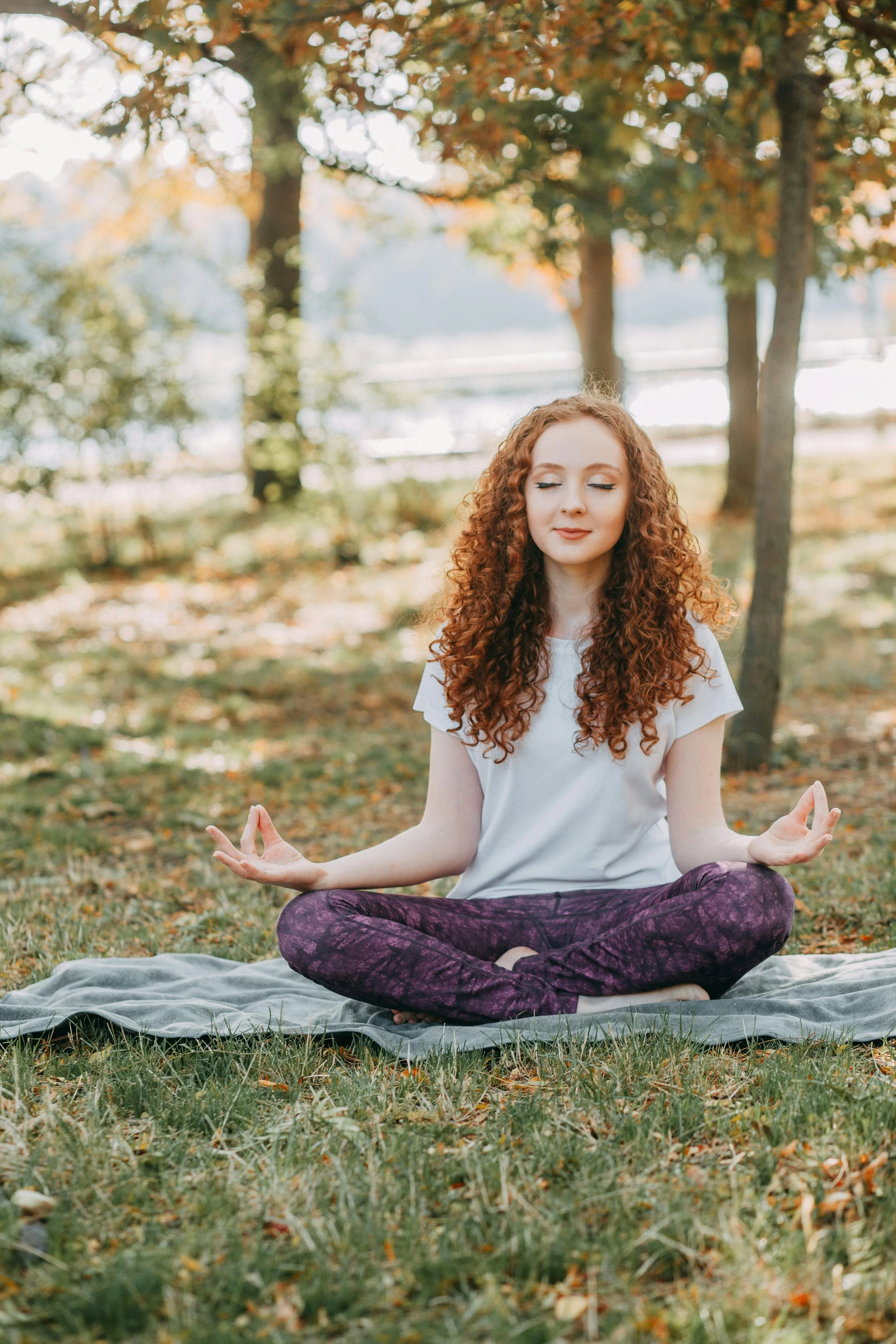Yoga and Mental Health: Benefits of Yoga for Mental Health
Author: Patricia Celan
How Yoga Improves Mental Health
Benefits of Yoga for Mental Health
Mechanisms of Yoga's Effect on Mental Health
Yoga as a Complementary Therapy for Mental Health
Utilizing Yoga in Mental Health Treatment
Frequently Asked Questions
What are the mental health benefits of yoga?
Yoga has become synonymous with health and wellness for many people. The beauty of yoga lies in the fact that there are therapeutic effects of yoga available across the lifespan. Yoga fans may be happy to know that we can use yoga for people of any health status by finding a form of yoga that suits their needs. Starting a yoga practice can provide many mental health benefits and is a valuable adjunctive therapy for treating stress, depression, and anxiety disorders.
Depression and yoga
Anyone can use yoga to improve their mood. One of the advantages of yoga is that regular practice has been linked to an increase in the production of neurotransmitters like serotonin and dopamine, which are associated with feelings of well-being and happiness. This can help alleviate symptoms of depression.
Anxiety reduction through yoga
Yoga promotes deep, mindful breathing. Yoga for anxiety involves using deep breathing to activate the parasympathetic nervous system, which helps calm the body's stress response and reduces anxiety.
Emotional well-being with yoga
A yoga session encourages self-reflection and introspection. Through mindfulness practices and observing sensations in the body, yoga practitioners can improve emotional awareness, understanding, and acceptance of their feelings.
Yoga's impact on mental health conditions
The benefit of yoga lies in its ability to incorporate mindfulness practices and meditation, which can help individuals become more aware of their thoughts and emotions. Regularly training the mind through yoga increases awareness and can lead to better management of depressed or anxious thoughts and feelings.
Research findings on yoga for depression and anxiety
There are evidence-based benefits of yoga. In several studies, researchers have found that yoga is beneficial in reducing symptoms of depression and anxiety. For example, a meta-analysis published in the Journal of Affective Disorders in 2017 found that yoga could significantly reduce depressive symptoms in individuals compared to control groups.
How does yoga contribute to mental and physical health?
Physical postures and mental well-being
Engaging in the physical postures (asanas) of yoga may improve overall physical health and well-being. Exercise has been shown to release endorphins, which are natural mood lifters, and can help combat feelings of lethargy and fatigue often experienced by individuals with depression.
Yoga's role in reducing stress
Yoga combines breathing exercises, meditation, and physical postures that can help reduce stress levels. By training in these practices, individuals may experience a decrease in the physiological symptoms associated with stress, such as elevated heart rate and blood pressure.
Mental health benefits of different types of yoga
Several types of yoga classes have been found to have mental benefits, including but not limited to Hatha, Vinyasa, Restorative, Yin, and Trauma-Informed Yoga. One of the benefits of practicing yoga is that an in-person yoga class of any type can provide a sense of community and social support, which is important for individuals struggling with depression or anxiety. Connecting with others in a yoga group can help reduce feelings of isolation and loneliness.
Yoga's impact on overall well-being
Even outside a yoga studio, engaging in yoga either through online yoga (Yoga with Adriene is popular on YouTube) or yoga at home can emphasize the connection between the mind and body, encouraging practitioners to become more aware of their thoughts, emotions, and physical sensations. This heightened awareness can help individuals recognize and address negative thought patterns and emotional distress.
Studies indicate that yoga leads to improvements in mood and overall well-being among individuals who regularly practice it. These improvements often include increased feelings of happiness, relaxation, and self-acceptance, as well as decreased feelings of stress and tension.
Yoga for specific mental health disorders
Yoga may help practitioners to cultivate self-compassion and acceptance, acknowledging and embracing both their strengths and limitations. That’s why yoga can be beneficial for individuals with depression, who may struggle with feelings of self-criticism and low self-worth.
Can yoga be effective in managing mental health conditions?
Yoga interventions for mental health
Research suggests that yoga across different yoga styles has beneficial effects, including hatha, vinyasa, restorative, and yin yoga, among others. This suggests that individuals may find relief from depression and anxiety through a variety of yoga modalities.
Research evidence supporting yoga for mental health
In a review of the research, there is evidence to indicate that yoga may be beneficial with a similar effectiveness as traditional treatments, such as medication or psychotherapy, for reducing symptoms of depression and anxiety. A study published in JAMA Psychiatry in 2013 found evidence that yoga can reduce symptoms of depression, with a similar effectiveness as cognitive behavioural therapy (CBT).
Mental health benefits of yoga practice
Yoga offers individuals valuable coping skills that can be applied off the mat. Breathing techniques, mindfulness practices, and relaxation exercises can serve as effective tools for managing stress, regulating emotions, and navigating difficult situations.
Yoga's potential to reduce symptoms of mental health conditions
Depression often disrupts sleep patterns, leading to insomnia or poor quality sleep. The relaxation techniques and breathing exercises practiced in yoga can improve sleep by calming the mind and body, making it easier to fall asleep and stay asleep throughout the night.
Yoga and its impact on mental health disorders
Yoga helps to encourage living in the present moment and letting go of worries about the past or future. By focusing on the breath in yoga, and sensations in the body, individuals can cultivate mindfulness and presence, reducing depressive rumination and anxiety.
What are the physical benefits of practicing yoga for mental health?
Physical benefits of practicing yoga for emotional well-being
Many yoga poses target areas of the body where tension is commonly held, such as the neck, shoulders, and hips. By releasing physical tension and tightness, yoga can alleviate physical discomfort that is often associated with emotional stress.
Yoga's impact on physical and mental well-being
Yoga encourages practitioners to tune into how their bodies feel, fostering greater awareness of physical sensations, emotions, and energetic patterns. This increased body awareness can help individuals identify and address areas of tension or discomfort that may be linked to emotional stress.
Evidence supporting yoga for physical and mental health benefits
Numerous studies have demonstrated that regular yoga practice increases flexibility and muscle strength, contributing to better overall physical fitness. A study published in the Journal of Clinical Psychiatry in 2007 found that practicing yoga was an effective intervention for improving mood and reducing anxiety in individuals with mild to moderate depression.
Yoga's role in improving overall health for mental well-being
Yoga has been shown to enhance mental health through improving psychological resilience, or the ability to bounce back from adversity and cope with life's challenges. This is attributed to the fact that yoga promotes mindfulness, self-compassion, and stress management skills.
Yoga's potential to reduce symptoms of mental health conditions
Regular yoga practice has been linked to improved sleep quality and duration, which are essential for emotional and mental well-being. By promoting relaxation, reducing stress, and calming the mind, yoga can help individuals achieve better sleep and wake up feeling more refreshed and rejuvenated.
It's important to note that while yoga treatment can be a valuable adjunctive therapy for depression, it should not replace traditional treatments such as therapy and medication. Individuals experiencing depression should consult with a healthcare professional to develop a comprehensive treatment plan tailored to their specific needs.
How can yoga contribute to reducing stress and improving mental health?
Yoga's influence on reducing stress and anxiety
Yoga seems to be widely recognized for its stress-relieving effects. Research indicates that getting on that yoga mat for practices such as asana (physical postures), pranayama (breathing exercises), and meditation can reduce levels of perceived stress and reduce levels of cortisol, the stress hormone.
Yoga's impact on mental well-being through stress reduction
Yoga practices influence the autonomic nervous system, which regulates the body's stress response. By stimulating the parasympathetic nervous system (responsible for rest and relaxation), yoga counteracts the effects of the sympathetic nervous system (responsible for the "fight or flight" response), promoting a state of calmness and equilibrium.
Practicing yoga for stress management and mental health improvement
Yoga encourages practitioners to focus on the present moment, cultivating mindfulness and awareness of thoughts, sensations, and emotions without judgment. This mindfulness practice helps individuals become less reactive to stressors and more adept at managing their responses.
Effect of yoga on stress-related mental health conditions
Numerous studies have demonstrated that yoga may reduce symptoms of anxiety disorders, such as generalized anxiety disorder (GAD), social anxiety disorder, and panic disorder. Yoga's combination of physical activities, breathwork, and mindfulness fosters a sense of empowerment and self-efficacy, enabling individuals to better cope with depressive symptoms. Yoga for posttraumatic stress disorder helps manage symptoms such as intrusive memories, hypervigilance, and emotional reactivity, through practices that promote relaxation, reduce hyperarousal, and increase self-regulation skills, helping individuals manage symptoms of PTSD.
Yoga for emotional stability and stress reduction
Regular yoga practice builds emotional resilience by teaching individuals to stay grounded and centred in the face of challenges. Yoga may also help people learn to breathe through discomfort and stay present during difficult situations on the yoga mat, so practitioners develop skills that can be applied off the yoga mat, leading to greater emotional stability and adaptability.
Yoga provides individuals with a toolbox of coping mechanisms to manage stress more effectively. These may include breath awareness, relaxation techniques, mindfulness practices, and self-compassion exercises, empowering individuals to navigate life's stressors with greater ease and equanimity.
Q: What is the connection between yoga and mental health?
A: Yoga and mental health are closely linked, as practicing yoga has been shown to have numerous benefits for mental well-being.
Q: How can yoga improve mental health?
A: Yoga can help reduce stress, anxiety, and depression levels, improve mood, increase relaxation, and boost overall mental clarity and focus.
Q: What are the benefits of yoga for mental health?
A: The benefits of yoga for mental health include improved emotional and mental well-being, better stress management, increased mindfulness, and enhanced self-awareness.
Q: How does yoga help in improving mental health?
A: Yoga helps in improving mental health by promoting relaxation, reducing cortisol levels, increasing feel-good hormones like endorphins, and calming the mind through focused breathing and meditation.
Q: Can yoga may reduce symptoms of certain mental health conditions?
A: Yes, yoga may reduce symptoms of conditions such as anxiety disorders, depression, PTSD, and ADHD by providing a holistic approach to healing that combines physical postures, breathwork, and meditation.
Q: What aspect of yoga is particularly beneficial for mental health?
A: The aspect of yoga that focuses on breathwork and mindfulness practices, such as pranayama and meditation, is particularly beneficial for improving mental health and overall well-being.
Q: Is it recommended to have a yoga teacher when practicing yoga for mental health?
A: While practicing yoga for mental health benefits, having a qualified yoga teacher can provide guidance, support, and personalized instruction to ensure a safe and effective practice.
Q: How can yoga be used as a complementary therapy for mental health treatment?
A: Yoga can be used as a complementary therapy for mental health treatment by integrating it with traditional therapies to enhance the overall healing process, promote self-care, and improve mental resilience.
Additional yoga teacher trainings, courses & workshops we have offered include:
300 Hour Yoga Teacher Training | Yin Yoga | Yamas & Niyamas | Ayurveda Vancouver | Kids Yoga | Yoga Nidra | Art of Assisting | Mantra & Vedic Stories | Chair Yoga | Biotensegrity | Advanced Philosophy & Pranayama | Restorative Yoga





